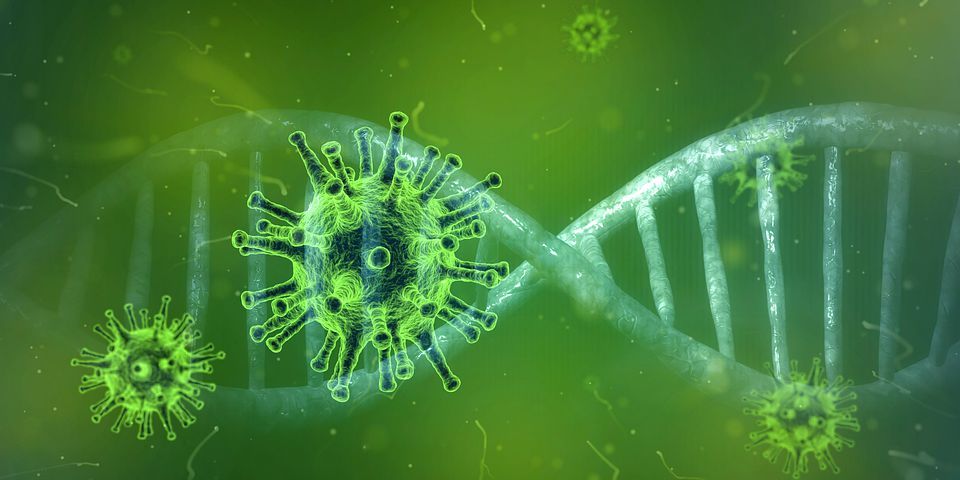Immunotherapy Combination for Cancer Under Evaluation for Treatment of COVID-19
"Promising results would pave the way to a larger clinical trial that would include non-cancer patients at high risk for COVID-19 complications.”

The immunotherapy combination of rintatolimod (Ampligen) and interferon alfa-2b, which has primarily been evaluated as treatment of patients with cancer, will be available for patients with cancer who are diagnosed with the coronavirus disease 2019 (COVID-19) in a phase I/II clinical trial at Roswell Park Comprehensive Cancer Center. The FDA authorized initiation of the study in order to determine the safety and effectiveness of the combination as treatment of COVID-19.
These 2 therapies were first combined in studies of patients with cancer at Roswell Park, and this trial marks the first to combine these therapies for the treatment of COVID-19.
“There are similarities between cancer and COVID-19, which both manage to avoid activating the interferon pathway,” said Pawel Kalinski, MD, PHD, director of Cancer Vaccine and Dendritic Cell Therapies, Rustum Family Professor for Molecular Therapeutics and Translational Research and Professor of Oncology at Roswell Park, in a statement. “This helps them to go undetected and spread in patients’ bodies and differentiates them from viruses that cause the common cold, which cause rapid symptoms and are rapidly cleared by the immune system.”
Kalinski was the first researcher who proposed the combination of these 2 agents could treat patients with cancer. He is the lead on 5 clinical studies in progress or currently under development assessing the regimen in solid tumors, including breast and colorectal cancer. Kalinski will be the scientific lead on the study in patients with COVID-19 as well, along with clinical principal investigator Brahm Segal, MD, chair of Internal Medicine and chief of Infectious Diseases at Roswell Park.
The trial will evaluate the safety of the combination regimen in patients with cancer and mild-to-moderate COVID-19. Investigators will also assess the extent to which the regimen promotes clearance of the SARS-CoV-2 virus from the upper airway. Approximately 40 patients will be enrolled in 2 stages. For the phase I portion of the study, 12 to 24 patients will receive escalating doses of rintatolimod and interferon alfa-2b. Further participants will randomly be assigned to 1 of the 2 arms, or groups in which patients will receive either the 2-drug combination or a control group that will receive only 1 agent and the best available care.
According to published data from Kalinski’s laboratory, the combination has demonstrated a synergistic effect in preclinical cancer treatment models.
Patients with cancer who are also diagnosed with COVID-19 have a 5-times higher risk of severe illness compared with those who do not have cancer. Treatment for this patient population remains an important unmet need requiring new therapeutic options.
Interferon alfa-2b has been approved by the FDA for the treatment of some cancers and is known to boost antiviral immunity in patients. Rintaolimod is an investigational agent that is recognized by the immune system and activates antiviral defense pathways.
The effectiveness of the combination for the treatment of cancer will not be evaluated in this study as separate studies will be conducted to assess that. Additional sites may open for enrollment of this study as well.
“SARS coronaviruses such as SARS-CoV-2, the virus that causes COVID-19, take hold because they’re able to evade the innate immune system,” stated Segal. “The premise for the trial is that by activating the interferon pathway with these two agents, we may be able to deprive the virus of the ability to replicate, knocking it out before it has a chance to cause severe lung damage or other serious effects. Promising results would pave the way to a larger clinical trial that would include non-cancer patients at high risk for COVID-19 complications.”
Reference
Roswell Park to Assess Immunotherapy Combination in Cancer Patients With COVID-19 [news release]. Buffalo, NY: Roswell Park Comprehensive Cancer Center; May 12, 2020. https://bit.ly/3fZKpN6. Accessed May 18, 2020.